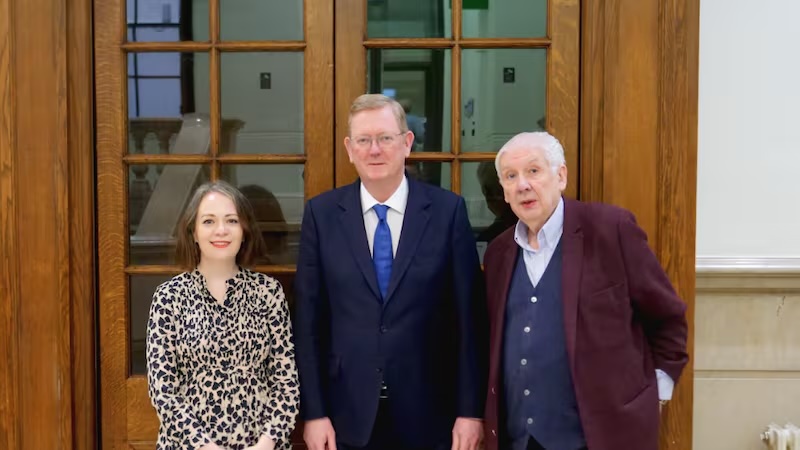
A plan by the British government to produce its own history of the conflict has been denounced in Ireland.
The announcement by London that it has commissioned “independent” historians to write its “public” history of the conflict comes as it is shutting down investigations, inquests and related legal processes.
The project will be led by Belfast-born peer and historian Paul Bew (pictured, right), a retired professor of Politics at Queen’s University, and Dr Caoimhe Nic Dháibhéid (pictured, left), a Sheffield-based lecturer who specialises in “political violence and terrorism”.
It is the latest attempt by the British government to ‘re-educate’ Irish citizens about the conflict, even as it engages in flagrant censorship and secrecy over its role in collusion, ambushes and massacres.
It also comes as a new package of propaganda, including cartoon videos, is to be delivered to schools in the north of Ireland in an attempt to promote its view of the 1998 Good Friday Agreement.
The Committee for the Administration of Justice revealed that when British minister Jonathan Caine was asked what the purpose of the official history was, his response was that his government was “entitled to put forward its version of history”.
They said academics in the North who were approached had refused to be part of it.
“Given that this is a British government initiative, who has been showing its true colours ad nauseam of late on its approach to truth and justice, this cannot be independent,” said Irish historian and commentator Cormac Moore.
“No historian should have anything to do with it.
“Just as the British Legacy Act will not ‘address the legacy of the Northern Ireland Troubles and promote reconciliation’, this ‘independent public history’ will not ‘help allow for a fuller examination of the Troubles than has ever been possible before’, as declared by Secretary of State Chris Heaton-Harris.
“It can be dressed up and packaged as independent all it wants but this is a British government initiative, from a government that is currently demonstrating, through the Legacy Act, how little it respects independence in the examination of its role throughout the Troubles.
He noted this week a report from a panel convened by the Norwegian Centre for Human Rights claimed Britain’s reputation would be “severely damaged” by the act and that it had engaged in cover-ups over its actions.
Although the prospect of accessing newly-available archives would be “mouth-watering”, he said the “heart of the problem” was with the files that will not be made available, noting that files from 120-130 years ago are still deemed too sensitive to grant access to.
“Judging by this British government’s current actions in preventing the public accessing of files for ongoing inquests, it is patently obvious the historians involved in this project will not have access to the full archive, certainly not files the British government deems sensitive.”
He concluded: “This is another insensitive and crass move by this British government which appears only interested in absolving itself from blame for it sins of the past.”
![[Irish Republican News]](https://republican-news.org/graphics/title_gifs/rn.gif)
![[Irish Republican News]](https://republican-news.org/graphics/title_gifs/harp.gif)

